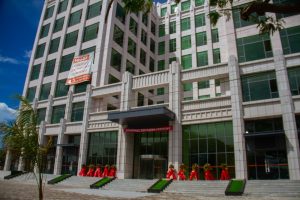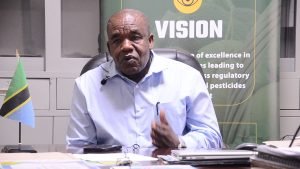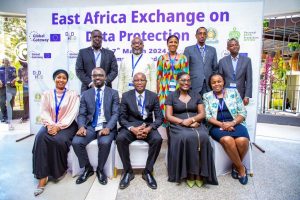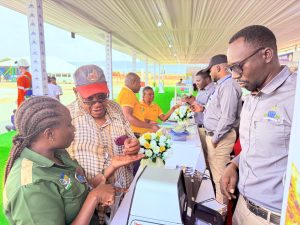SAT’s DWABI Project Trains Over 2700 Farmers On Organic Agriculture
By Valentine Oforo
A PROJECT has
been hatched with an eye to impart the farmers in the three Districts of Chamwino,
Mpwapwa and Dodoma with the needed knowledge to practice organic agriculture,
being also in efforts to help heighten climate resilience.
Organic farming, also known as ecological farming or
biological farming, is an agricultural system that uses fertilizers of organic
origin such as compost manure, green manure, and bone meal and places emphasis
on techniques such as crop rotation and companion planting.
Christened ” Dodoma’s Women in Agriculture and
Business Initiatives (DWABI II), the three –years project is a brain child of the
‘Sustainable Agriculture Tanzania’ (SAT)
Organization, and it is being implemented under the financial auspices from the
Austrian Development Agency (ADA) as well as ICEP.
Among others, the project attracts the small-scale
farmers, especially those organized in model cooperative with a prime focus also
to assist the beneficiary farmers to professionally engage into value addition
and entrepreneurial activities.
Since its inception, in 2022, the robust initiative have
so far managed to train more than 2700 farmers under different 61 groups, the
vital training which based on organic agriculture, specifically on agroforestry
and soil water conservation technologies as one of the best ways of mitigating
climate change effects and increase productivity. Moreover, during the period a
total of 60 demo plots were established.
As part to ensure the beneficiary farmers are
getting the most needed agronomic practices to effectively engage into organic
farming, the project has recently
conducted a special event on organic agriculture education theatre and
community sensation about persons with disabilities.
Speaking to this publication during the relevant
event held in Mpwapwa District, the Project’s Facilitator, Rose Ndunguru expressed
that the focus behind the event was to create among the farmers more awareness about
organic agriculture technologies and its benefits contributing to yield
increase, food security hence livelihood improvement.
“Also, the motive behind staging of this organic
agriculture education theatre and community sensation is to ensure the persons
with different forms of disabilities are included in the farming sector,” she
expressed.
And Ndunguru added: “That’s why this activity runs
under the theme of: “Organic agriculture for better consumer’s health and
sustainable Environment with no one left behind”
Anna Kayoya, one among the project’s beneficiary farmers
from Mpwapwa District said through the initiative she has so far managed to
acquire vital practical skills pertaining to organic farming, the development
which has assisted her to scale up her farming performance.
“Through
the project we have been trained on varied methods of organic
agriculture which enabled us to increase climate resilience,
and hence allow sustainable production at our farms,” she detailed.
However, most of the farmers interviewed by this
publication expressed to have also benefited a lot from various training on entrepreneurial
skills and how to access capital loans.
“For instance, through the formation of
One
Model-Cooperative, we’re now producing various products from organic produce,
and marketing them at various markets,” informed Charles Msanjila, another
beneficiary farmer.
Among the project’s chief specific objectives
are to create awareness about organic agriculture practices to at least 3000
people including 2 percent of the persons with disabilities in 26 villages in Chamwino
and Mpwapwa districts.
Others are to ensure the farmers are knowledgeable
through received training, capture, and follow the instructions in the posters
to practice organic agriculture technologies.
THE
PROJECT’S ACHIEVEMENTS
Since two years of the project’s implementation a
lot of achievements have so far been achieved, including accomplishments of the
following:
Livestock improvement through training, supply of
goats improved breeds and chicks for poultry keeping in 45 Women groups.
Creating awareness about organic agriculture to 1996
stakeholders through participating in the annual agriculture exhibition (Nanenane
Kanda ya Kati) where SAT won the second position in NGOs category.
Supported 877 women to do Participatory market
research for opening market opportunities for their products.
232 women farmers were certified organically and can
market their crops along East Africa as they have East Africa Organic Market
3 saving and lending Apexes were formed to increase
access to financial services and accumulated above 70,000,000 TZS which is
circulated as loans among members for 9 months.
934 women trained on entrepreneurship with products
upgrading to increase income generating activities among them.
624 Energy saving stoves were constructed and this
increased women’s income as they are paid but also minimizes the effects of
climate change as they use little firewood.
To expand the market for organic crops, one
Cooperative (Mpwapwa and Kibakwe Agriculture and Marketing Cooperative
Society, MPWAKI AMCOS LTD) was established and registered.
ABOUT SAT:
Sustainable Agriculture Tanzania (SAT) is a vibrant
organization in networking, promoting, advocating, undertaking, and
facilitating Sustainable Agriculture through Research, Dissemination,
Networking and Application.
SAT is registered under the NGOs Act with
registration number ooNGO/R/0833. SAT aims at providing appropriate information
and guidance to farmers on technologies, innovations and practices that improve
food security in a sustainable, socially, economically, and environmentally friendly
manner.













